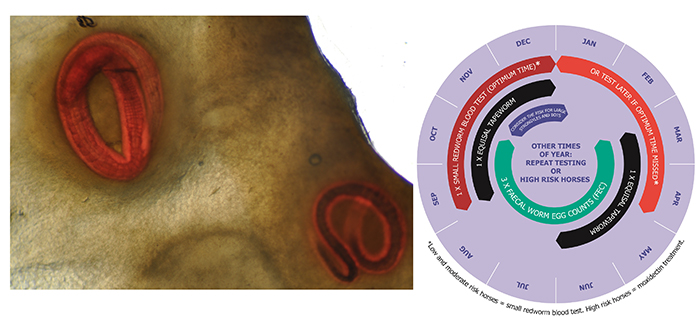A new blood test for diagnosing small redworm (cyathostomin) infections in horses is to be launched by Austin Davis Biologics (ADB), the providers of EquiSal Tapeworm saliva testing service.
The new test, developed at Moredun Research Institute, enables detection of all stages of the small redworm life cycle, including the encysted larval phase. Until now it has not been possible to test for encysted small redworm as faecal egg counts (FEC) only detect the presence of egg laying adult worms. This has meant that a routine winter treatment to target this life cycle phase has become the recommended practice.
Small redworms are the most common gastrointestinal parasites to infect horses. When horses harbour a large burden of encysted larvae that emerge on mass from the intestinal wall, clinical symptoms develop, such as diarrhoea and colic, which can be fatal (larval cyathostominosis).
The blood test has been developed by Professor Jacqui Matthews’ group at the Moredun Research Institute (MRI), the main funder being The Horse Trust.
ADB’s Dr Corrine Austin said: “We are thrilled to be making this test available to horse owners after extensive research has been conducted to achieve high accuracy. ADB is now developing laboratory ELISA kits to enable independent veterinary laboratories to conduct blood testing; these kits are expected to reach the market during 2020. Research into the saliva-based test is ongoing and is expected to be commercialised several years from now.”
Professor Matthews added: “It is great to see the commercialisation of this much-needed test to support sustainable worm control in horses. The test fills an important gap in our diagnostic toolbox and will enable horse owners to work with their veterinarians in targeting anthelmintic treatments against cyathostomin infections and hence help protect these important medicines for the future.”


